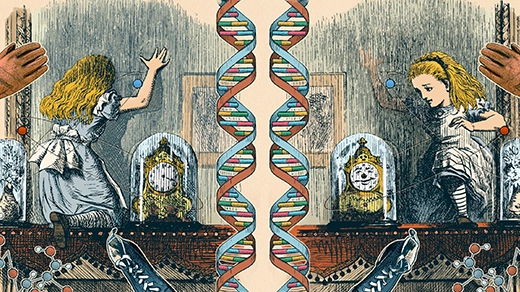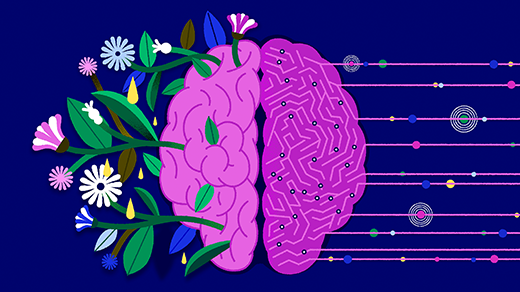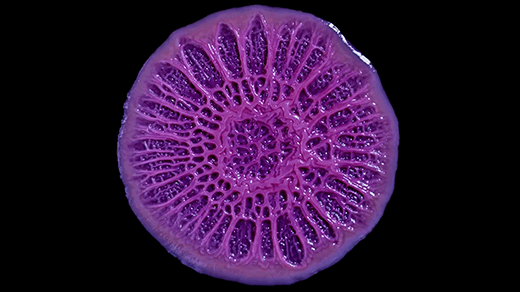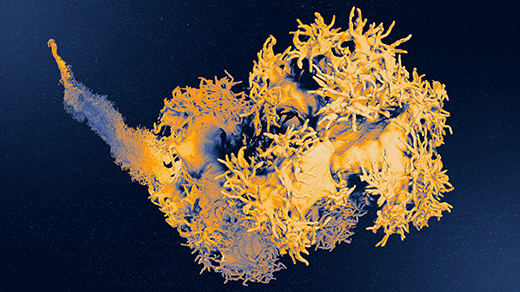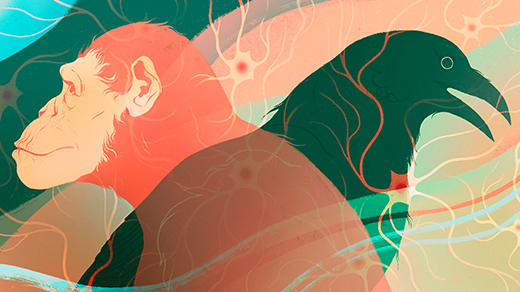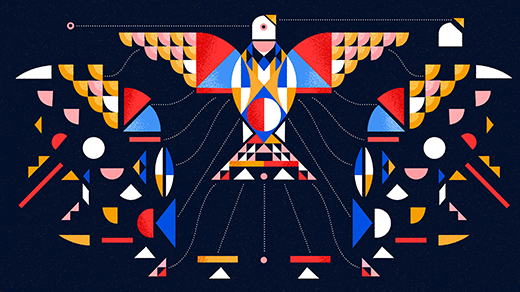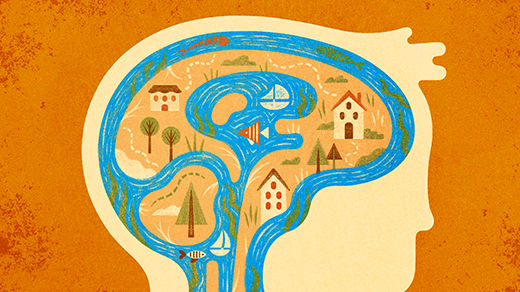What's up in
Biology
Latest Articles
How the Universe Differs From Its Mirror Image
From living matter to molecules to elementary particles, the world is made of “chiral” objects that differ from their reflected forms.
The Molecular Bond That Helps Secure Your Memories
How do memories last a lifetime when the molecules that form them turn over within days, weeks or months? An interaction between two proteins points to a molecular basis for memory.
AI Is Nothing Like a Brain, and That’s OK
The brain’s astounding cellular diversity and networked complexity could show how to make AI better.
Introducing The Quanta Podcast
Exploring the distant universe, the insides of cells, the abstractions of math, the complexity of information itself and much more, The Quanta Podcast will be a tour of the frontier between the known and the unknown.
How a Biofilm’s Strange Shape Emerges From Cellular Geometry
Micro decisions can have macro consequences. A soft matter physicist reveals how interactions within simple cellular collectives can lead to emergent physical traits.
Touch, Our Most Complex Sense, Is a Landscape of Cellular Sensors
Every soft caress of wind, searing burn and seismic rumble is detected by our skin’s tangle of touch sensors. David Ginty has spent his career cataloging the neurons beneath everyday sensations.
Intelligence Evolved at Least Twice in Vertebrate Animals
Complex neural pathways likely arose independently in birds and mammals, suggesting that vertebrates evolved intelligence multiple times.
Why Everything in the Universe Turns More Complex
A new suggestion that complexity increases over time, not just in living organisms but in the nonliving world, promises to rewrite notions of time and evolution.
The Mysterious Flow of Fluid in the Brain
A popular hypothesis for how the brain clears molecular waste, which may help explain why sleep feels refreshing, is a subject of debate.
